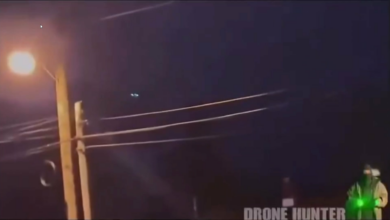If the Pentagon Approves Your Statements, You’re a Spokesperson, Not a Whistleblower, Says The Why Files
Be Wary of Pentagon-Approved Whistleblowers, Says Skeptic
"Everything they say is approved by the Pentagon—that’s not whistleblowing; that’s public relations," warns a concerned critic, urging the public to maintain a healthy skepticism towards government-sanctioned disclosures. This individual argues that the so-called whistleblowers receiving clearance from high-level government bodies aren’t actually lifting the veil on hidden truths but are instead participating in strategic PR campaigns.
The Elusive Search for Irrefutable Evidence
The skeptic further challenges the authenticity of these disclosures by doubting the likelihood of ever obtaining irrefutable evidence. "One thing, I’m willing to bet money on: they will never provide irrefutable evidence," they state, suggesting that even after another 80 years, these discussions will yield no concrete results.
Comparing Different Allegations: The Case of Bob Lazar
In contrast to prominent figures like Grusch or Lue, the critic cites the controversial case of Bob Lazar, who claimed to have worked on extraterrestrial technology. Lazar provided specific names, locations, and dates associated with his allegations. "That person was massively downvoted, but I agree," the commenter notes. "I’m not endorsing his statements; he didn’t release tangible evidence, but that’s more than the celebrities of this sub have done."
A Call for Independent Thinking
The post concludes with a caution against blindly following popular narratives and encourages independent thought. "Don’t be sheep," the critic warns. They acknowledge the possibility of facing backlash, potentially from agents promoting particular viewpoints. However, their message to the average reader remains clear: "Think for yourself. Open your mind."
Final Thoughts
In a world increasingly inundated with information from all sides, maintaining a critical perspective is essential. While many voices claim to reveal hidden truths, discerning fact from fiction requires vigilance and independent thinking. The skeptic’s call to action is a timely reminder to question, investigate, and think critically about the information presented to us.




